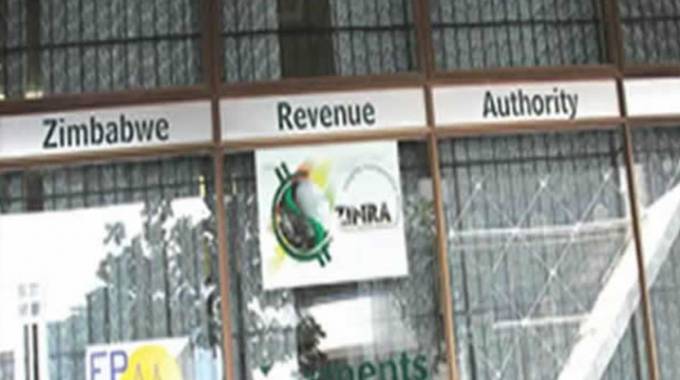
The Sunday Mail

THE cost of fiscal tax registers are falling as competition rises following Government’s approval of more suppliers of the devices.
Among the suppliers is the tax collector, the Zimbabwe Revenue Authority, which has imported at least 10 000 fiscal devices and is selling them.
There is huge demand for fiscal devices following Government’s directive last year that all value added tax-registered businesses generating more than US$60 000 per year should have them by January 1, 2017 as per Statutory Instrument 104 of 2010.
Fiscal tax registers record financial transactions and transmit the data in real time to Zimra.
The devices were previously going for between US$1 200 and US$1 700 as a few firms monopolised supply, but are now going for US$350-US$500.
Zimra is among several organisations now approved to supply fiscal tax registers, and will hope greater compliance will see it improve VAT collections from the US$324 million achieved in the first six months of 2017 against a target of US$330,3 million.
VAT collections on local sales were only outperformed by individual tax (US$347 million), underlining their centrality to revenue collection.
In his Mid-Year Budget Review last week, Finance and Economic Development Minister Patrick Chinamasa said VAT collections amounted to US$963,2 million last year against a target of US$955 million — a positive variance of US$8,2 million.
Government wants tax revenues to top US$3,7 billion this year, making increased tax compliance and fiscal devices imperative.
According to General Notice Number 307 published in the Government Gazette of June 23, 2017, the nine fiscal device suppliers are Zimra, Just IT, Global Horizons (Private) Limited, Rumikon Computers (Private) Limited, Microwarehouse (Private) Limited, Axis Solutions (Private) Limited, Cortech Solutions (Private) Limited, Fiscal Revenue Solutions (Private) Limited and Fiscal Support Services (Private) Limited.
In terms of the VAT (Fiscal Recording of Taxable Transactions) Regulations, 2010 (Statutory Instrument 104 of 2010), the approved firms are authorised to manufacture, supply or distribute fiscalised electronic tax registers, fiscalised electronic printers and fiscalised electronic signature devices.
Zimra hits ground running
Since its announcement as a supplier, Zimra has imported 10 000.
Zimra acting board secretary (corporate communications and international affairs) Ms Ropafadzai Majaja, told The Sunday Mail Business last week that the imports would “give additional impetus to the fiscalisation programme by improving the availability and affordability of the fiscal devices”.
“The authority has already started selling the fiscal devices to VAT registered clients, who are required to use fiscal devices in terms of the Value Added Tax (Fiscalised Recording of Taxable Transactions) Regulations 104 of 2010. I am, however, unable to furnish you with sales figures at the moment,” said Ms Majaja.
Zimra is selling electronic cash registers for US$350 and electronic fiscal printers for US$500.
Global Horizons’ point-of-sale machines are between US$200 and US$250, while the fiscal printer is US$1 050, taking the total cost to around US$1 300.
Microwarehouse did not have the devices in stock, and could not give prices. A sales official said the devices were expected in two weeks’ time.
Statistics show that as at June 30, 6 409 companies had installed fiscal devices, giving Zimra access to their transactions.
Confederation of Zimbabwe Industries president Mr Sifelani Jabangwe commended Government for approving more fiscal device suppliers.
“The coming in of other suppliers increases internal competition and helps in ensuring that consumers get the fiscal devices at lower prices. The best type of business will source efficiently and sell efficiently, unlike in situations of monopolies where the approved supplier would just get your money and possibly import one device specifically for you when it would be cheaper to import a container full of devices.
“Now that fiscal devices are much more affordable, we might see the uptake of these devices rising. There was no way an SME would have obtained over US$1 000 to purchase a fiscal device.
“But if the prices can come further down, I will be happy because more businesses will be able to acquire them. What we now need are payment plans of about 12 months and even 24 months because smaller players would still find it difficult to raise US$300 at once.”
Several countries have gone the fiscalisation route.
In Tanzania, it resulted in a 9,6 percent increase in revenues between 2010 and 2011, and 23 percent between 2011 and 2012. Businesses that fail to fiscalise in Tanzania are fined Sh3 million (about US$1 343).
Zambia is also working on fiscalisation to shore up revenues.



